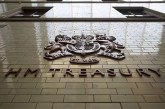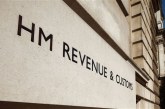TRANSFORMING OUR FINANCIAL SYSTEM
Labour Manifesto 2017:
A decade after the devastating international financial crisis, our financial system is still holding back too many of our small businesses and local economies.
Labour will transform how our financial system operates. Following the successful example of Germany and the Nordic countries, we will establish a National Investment Bank that will bring in private capital finance to deliver 250 billion of lending power.
This new public institution will support a network of regional development banks that, unlike giant City of London firms, will be dedicated to supporting inclusive growth in their communities. The banks will deliver the finance that our small businesses, co-operatives and innovative projects need across the whole country.
The National Investment Bank will fill existing gaps in lending by private banks, particularly to small businesses, and by providing patient, long-term finance to R&D-intensive investments. It will also be given the task of helping to deliver our industrial strategy, by prioritising spending in line with its objectives.
Labour will overhaul the regulation of our financial system, putting in place a firm ring-fence between investment and retail banking that will protect consumers. We will take a new approach to the publicly-owned RBS, and launch a consultation on breaking up the bank to create new local public banks that are better matched to their customers’ needs. And we will extend existing Stamp Duty Reserve Tax to cover a wider range of assets, ensuring that the public gets a fairer share of financial system profits.
Labour will change the law so that banks can’t close a branch where there is a clear local need, putting their customers first. Britain has a successful international finance industry, but we also need a strong, safe and socially useful banking system to meet the needs of our own regional economies and communities. We will commit to creating a more diverse banking system, backed up by legislation.
Richard Werner, Professor of International Banking, Southhampton University. January 2014
- Where does money come from?
- What causes recurring boom and bust cycles?
- Which policies has historically being most successful in avoiding these crises?
- What structure in the banking sector has achieved same result of that policy?
- Why is UK in recession and what is necessary to end it?
Noam Chomsky: philosopher, political writer, fearless activist. No one has done more to question the hidden actors who govern our lives, calling the powers that be to account. Here he presents Who Rules the World?, his definitive account of those powers, how they work, and why we should be questioning them.





